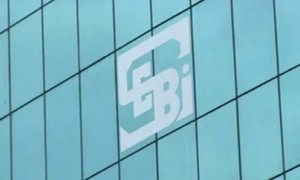 The Lucknow bench of the Allahabad high court will hear the Sahara Group versus Securities and Exchange Board of India (SEBI) case only after the capital markets regulator completes its probe into the nature of the financial instruments used by the two Sahara Group companies to raise money from the public.
The Lucknow bench of the Allahabad high court will hear the Sahara Group versus Securities and Exchange Board of India (SEBI) case only after the capital markets regulator completes its probe into the nature of the financial instruments used by the two Sahara Group companies to raise money from the public.
Sahara India Real Estate Corp. Ltd and Sahara Housing Investment Corp. Ltd are fighting the regulator on the issue optionally fully convertible debentures (OFCDs) being used to collect funds from investors.
The Supreme Court on 12 May had asked SEBI to determine the nature of OFCDs and whether Sahara was using them in a legitimate manner to raise money. SEBI is likely to submit its report on OFCDs issued by Sahara in the first week of July.
“The apex court in its 12 May order had said that the high court can choose to proceed or not proceed with the case hearing till SEBI passes an order determining the nature of OFCDs issued by Sahara Group,” said a lawyer for SEBI. “Therefore, the high court adjourned the hearing in the case till 20 July.”
The Supreme Court had earlier dismissed Sahara’s claims, saying that the key lies in the definition of OFCDs used by Sahara to collect public money.
“Why are you afraid? Let SEBI give its judgement. It is an expert body. We want to know what are OFCDs,” said a bench led by Supreme Court Chief Justice S.H. Kapadia, empowering the regulator to proceed with its probe.
Sahara India Real Estate and Sahara Housing Investment had raised Rs.4,843 crore by issuing OFCDs to investors under three schemes—Abode Bonds (Rs.1,385 crore), Nirman Bonds (Rs.1,980 crore) and Real Estate Bonds (Rs.936 crore), according to a June 2009 filing.
SEBI said the fund-raising was a violation of public issue norms laid down under the Companies Act and the SEBI Act. On 24 November 2010, SEBI banned several Sahara group entities including chief Subrata Roy from raising money from the public for allegedly violating public issue norms. Subsequently, on 13 December, the Lucknow bench of the Allahabad high court stayed the SEBI order pending investigation. On 4 January, the Supreme Court granted SEBI permission to seek and get details of names, addresses of investors and the amount invested in these schemes.
SEBI’s November ban on Sahara Group companies raising funds came into force on 7 April after the Allahabad high court vacated a stay on the order. Sahara is not allowed to raise money from the public.
Sahara had initially said the money it was raising was through private placements. But according to the law, if the number of investors exceeds 49, it will come under SEBI’s jurisdiction, said the regulator’s counsel after the hearing. Sahara admits to having about 6.6 million investors.
The forms used by the housing firms claim investors can expect returns in a range of 123-253%, depending on the type of bond. Investors can also exercise the option of converting their bonds to equity shares upon maturing, the bond sale documents said.





